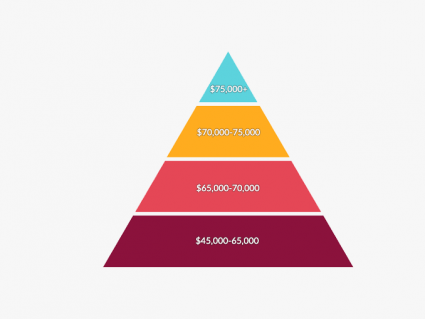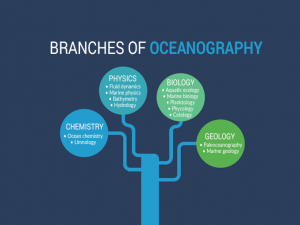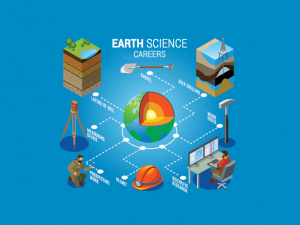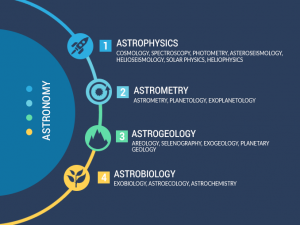Ecology Careers: What Do Ecologist Do?
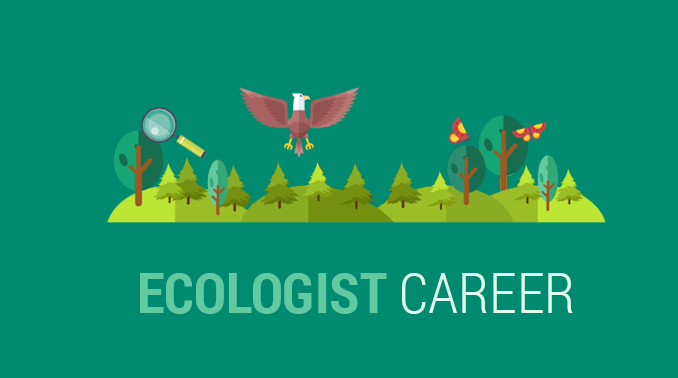
“Ecologists best understand how organisms relate to the physical and natural environment. For example, ecologists assess population dynamics in the built and natural environment.”
Ecologists work in all aspects of the environment. For instance, they may conduct studies on wetlands, lakes, ponds, flora, and fauna. Their observations include wildlife, birds, mammals, amphibians, reptiles, or any taxonomy of life.
Ecologists study the relationships between organisms and their environment. They are experts in understanding how species interact with each other, identifying the natural world’s balance, and exploring interactions between organisms in various types of ecosystems.
Sounds interesting? What’s the trajectory for ecology careers? And how much do they earn? Find you more about ecology as a career.
How much do ecologists make?
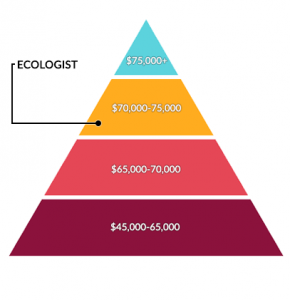
Ecologists earn an average annual salary of about 72,600$. Job growth and employment trends are normal. On average, ecologists earn more than other environmental science careers.
In general, ecologists work in the office or in the field giving advice to policymakers or baseline studies.
Ecology is one of the branches of biology. But companies view biologists and ecologists as two separate professions.
In most consulting companies, ecologists are different from biology careers in that they are (in general) hired professionals.
“Ecologists are seasoned specialists who typically require several years of experience. On the other hand, biologists, environmental scientists, and staff scientists are entry-level positions.”
What do ecologists do?
Ecologists see a solid mix of indoor and outdoor work. For example, they may oversee construction at sites to ensure no environmental impacts occur, risk assessment work, or even plant at a restoration site.
INDOOR WORK: Indoor work includes writing monitoring reports, ecological evaluations, and working with technical data.
OUTDOOR WORK: Fieldwork is often seasonal. For example, ecologists can conduct vegetative monitoring in the field only in the spring, summer, and fall months. At a whole other level, an ecologist career may respond to emergencies at an oil spill site or catch animals for rehabilitation. But the saying goes: A bad day in the field beats a good day in the office.
“Working in ecology is seeing conservation in action.”
What types of jobs do ecologists work in?
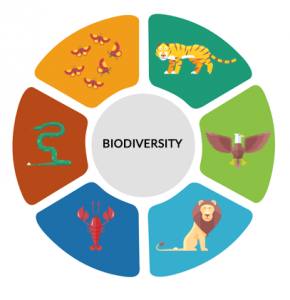
Ecologists can work in the built and natural environment. For instance, this may include forestry, farming, marine/freshwater, wetlands, grasslands, and deserts with
Working as an environmental scientist at a consulting firm, ecologists perform tasks like restoring habitats, tracking animals, and running predictive models.
CONSULTING: By far, private consultants hire the most ecologists. This is often for preparing an environmental assessment for major construction projects.
NON-PROFIT: Non-profit organizations like conservation groups need ecologists too. For environmental stewardship and protection, ecologists focus on habitat restoration and wildlife monitoring.
GOVERNMENT: Finally, local governments need ecologists to represent an administrative area as land managers. At a federal level, they are involved in policymaking and decision-making.
Are ecologists satisfied in their careers?
Some ecologists enjoy their balance between fieldwork and the corresponding reporting/office work.
Even though they experience nature in a rugged way, there can be extended periods in the field which is undesirable for some.
Ecologists have the chance to see some pretty amazing places. For example, they may visit an old industrial site or a pristine wetland. In addition, they may perform soil, groundwater, and hazardous waste sampling.
“By restoring disturbed areas, cleaning up hazardous sites, and characterizing risk, can be a fulfilling part of an ecology career.”
Do ecologists require a degree or certification?
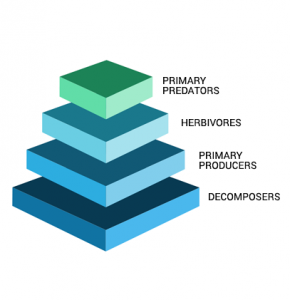
The vast majority of ecologists have a degree in some sort of environmental science. For example, degrees are focused on biology, zoology, and ecology.
In these courses, you learn about how amazingly diverse life on the planet is. You will tie this into how organisms interact with non-living things
Useful skills for ecologists include:
- GIS and map reading
- Statistics (R)
- Computer programming
- Data management
- Radio telemetry
- Soil sampling
- Trail camera setup
- Nature interpretation
These all come in handy no matter what you specialize in within an ecology career.
What is the job market for ecologists?
If you want to get your foot in the door, get an internship. Not only does it look great on your resume, but it gets you more exposed to different disciplines in ecology.
Volunteering is also a great way to make contacts in the industry. Because sometimes it’s not about what you know, but more about who you know.
Average Salary
- 72,600$ Percent of Earth Science Careers
- 1.4% Job Trend
- Average Level of Education Bachelor Degree or higher Work Setting Office, outdoor or laboratory
Ecology Careers: What Do Ecologists Do?
Ecological scientists study the interactions that take place between living organisms and their environment. This can be anything from how ecosystems work to how people affect the ecology.
They often study plants, animals, and other organisms in an area for a long period of time to learn about things like population changes in a specific species or how a change in habitat can affect the number of insects in a given area.
Otherwise, if you have any comments about the profession of ecology, please let us know with a comment below.


